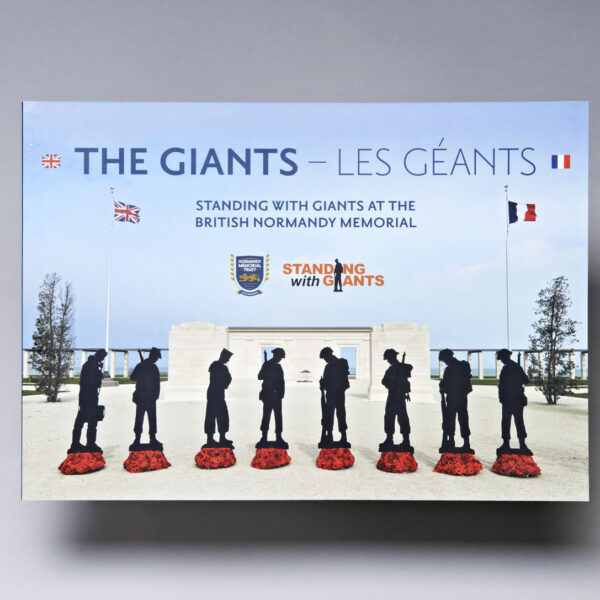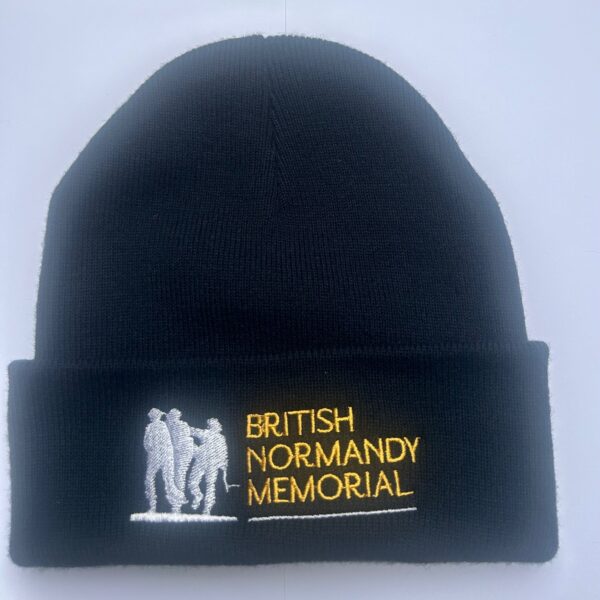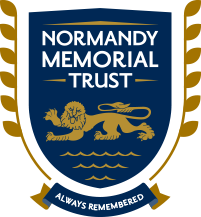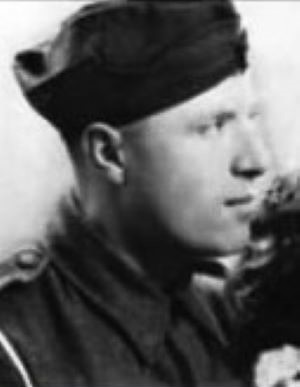
Victor Donald McGill
The photograph is shared with the Trust following research by the 11th Armoured Division Facebook Group and its Black Bull Research Team who discovered Victor McGill's story contributed by ActionBristol on the BBC WW2 People's War.
Remembering Victor McGill, Killed in Action, 26 June 1944.
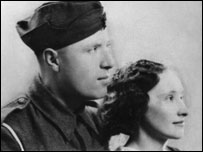
Victor and hsi wife, Iris
"Mum and Dad had only enjoyed eighteen months of marriage when war was declared, their son John only eleven months old. Dad's employment was in a reserved occupation as an oil tanker driver but as he had eight years Army Service in India, and just a short period left on the reserve list, he was 'called up' immediately.
Dad was to be stationed in Cornwall so their furniture was put into storage and the family left Monmouth to be together for as long as possible.
Dad was one of the last to be rescued off the beach at Dunkirk. Arriving in Bristol wet, muddy and exhausted and still carrying his gun, he fell into the nearest available chair and slept for twenty four hours.
Dad was offered a Commission; but with a growing family, which now included me, Glynis, born in a shelter in Devonport hospital, Plymouth, during an air raid, could not afford the Mess dues or the Dress Uniform so had to decline, much to his disappointment.
Soon after the Dunkirk debacle, Dad was moved to Yorkshire for further training. Mum travelled with us children by train with all our belongings, to live in 'rooms' in Molten. We were sharing a compartment with soldiers. When it became obvious I needed a breast feed, all the men voluntarily left the carriage for a while.
When the preparations for the Invasion were 'hotting-up' dad had to go into Barracks in Aldershot. Mum moved back to Bristol to stay with her sister until her third child, Margaret was born. The house was very cramped so Dad found accommodation for us in Clifton Wood on what was a bombed area behind Clifton Wood Crescent overlooking the very busy Charles Hills' Shipyard (now the SS Great Britain). We were living in one of the two properties left standing after the 1940 bombing raids. (The house was known as 2A Knoyle Cottages and until recently we could still stand on our old garden, but it has now been incorporated into the gardens of some of the houses in Clifton Wood Crescent.) Mum was left to retrieve their furniture from storage and set up home for the duration of the war until Dad returned and things could improve.
Dad managed to get a lift from barracks to Bristol where he was hoping to spend one night and attend to jobs Mum couldn't manage, i.e. curtain tracks. The radio was switched on as soon as Dad arrived home. Whilst completing the jobs a coded message came over the radio and Dad had to get back to base quickly.
It was to be their final parting, the coded message to signal the commencement of 'Operation Overlord' at 21.15 on 5th June 1944 was:
'Blessent mon coeur
Dune langueur
Monotone'
'Wounds my heart with a monotonous langour' from the Verse of Verlaine.
I have the last letter to mum written from France, in pencil, no date. Dad went to France with the Second Army on an American ship and said the food was wonderful, especially the apricots and jelly for pudding. They arrived at Graye-sur-Mer (Juno beach) on the 14th June.
Driving through the villages on his Sexton, (tank chasis with a twenty five pound gun) the people waved and cheered as they passed. Dad was surprised to see cows in the fields chewing away as if nothing was amiss.
They spent nights dug-in under hedges and there were near misses with aircraft fire. Dad felt he would be safe and wanted to get on with the task before them so he could return and enjoy being a family again. He sent his love to Mum and three pencil kisses for us children. I regret not remembering any real ones.
Dad couldn't send any more chocolate home as it was now part of their rations.
Mum received a telegram on 10th July with the news that Dad had been killed on the 27th June. Mum told my brother (aged five) and they were holding each other crying. I joined them in tears but have no memory of it.
None of Dad's belongings were returned and sadly Mum was not notified, in due course, of his name on the Memorial for the Missing at Bayeux.
Thirty nine years later Mum's neighbours daughter discovered Dad's name on the Memorial, and took photographs. The next year I managed to arrange for Mum to be included on an official party of forty War Widows to attend Commemorations in France for the 40th Anniversary.
It was a very emotional day for all of us. The following year we went as a family with Mum; it was a very moving experience.
After Mum's death in April 1994, just missing the V.E. Celebrations in London, and a widow for 50 years; my husband and I decided to try to find out, if possible, how Dad was killed. We read the War Diary for Dad's regiment at the Public Record Office, Kew.
Dad's regiment was included in General M.C. Dempsey's Second Army and 'Operation Epsom' which started on the 26th June near St Manvieu Norrey, South West of Caen.
The Diary had finished for the day 26th June but there was a late entry:-
'At the end of the day a Sexton took a direct hit. Sgt. McGill and two of his detachment were killed.' At last we knew what had happened.
The 'Operation' turned into a disaster and was abandoned on June 30th as there was such a loss of life. We believe that the two men killed with Dad, as there are only three men on the Memorial for that day, in Dad's regiment, were:-
Bombadier John Hallinan Aged 35
1106957 13th Regiment (Honourable Artillery Company) Royal Horse Artillery
Gunner John Wilson Cawte Aged 19
14418414 13th Regiment (Honourable Artillery Company) Royal Horse Artillery
My husband and I took our copy of the War Diary to France and followed the Regiment's journey to the battlefield. There is a large War Cemetery nearby. We searched, hoping to find an unknown grave, for a sergeant of Dad's regiment killed on the 26th June, to no avail; but I adopted an unknown grave next to one of Dad's regiment killed the next day to Dad. We visit as often as possible, last time on the 50th Anniversary, taking our Grand-daughter Amelia May. We can take plants to the beautifully kept grave and know Dad is near, whereas the Memorial at Bayeux is usually cleared quickly and a distance from where he lost his life.
The Register at the Memorial was incomplete of personal information of Dad, but we have now had the records updated. I especially wanted Dad's parents Selina and James, and home town of Bristol mentioned, but most of all my beloved Mother Iris May included as his wife.
Had Dad taken his Commission Mum's life would have been so much easier, financially, with an Officer's Widows Pension. As it was life was a real struggle to make ends meet.
Mum was also unlucky as her mother died when she two and she had very little help from the rest of the family.
At that time there was very little child care and no social support. On reflection I don't know how she managed, but she was a proud, hard working, diligent woman.
I am so proud of them both and will never forget what they sacrificed for us.
British Normandy memorial - Additional Information
WW2 People's War is an online archive of wartime memories contributed by members of the public and gathered by the BBC. The archive can be found at bbc.co.uk/ww2peopleswar
FALLEN HEROES
VICTOR DONALD MCGILL
Army • SERJEANT
Royal Horse Artillery
13th (Honourable Artillery Company) RegimentDIED | 26 June 1944
AGE | 33
SERVICE NO. | 5179838
FALLEN HEROES
VICTOR DONALD MCGILL
Army • SERJEANT
Royal Horse Artillery
13th (Honourable Artillery Company) RegimentDIED | 26 June 1944
AGE | 33
SERVICE NO. | 5179838




